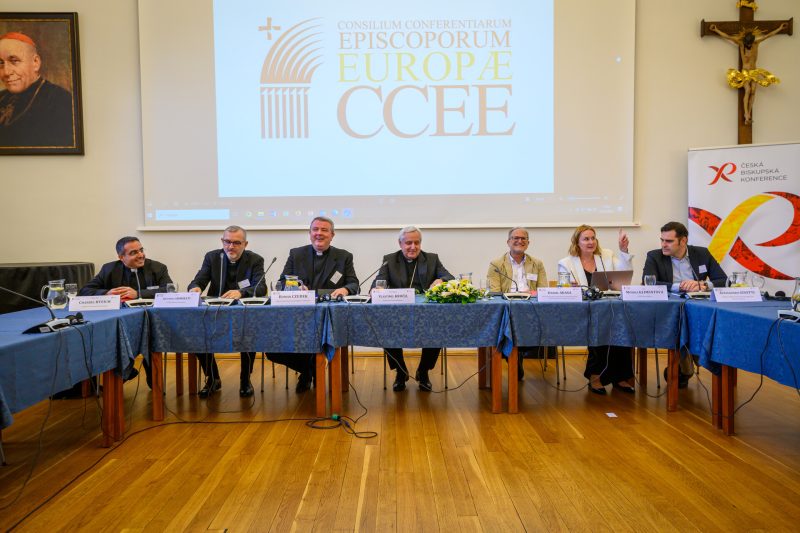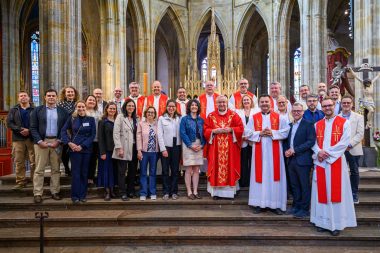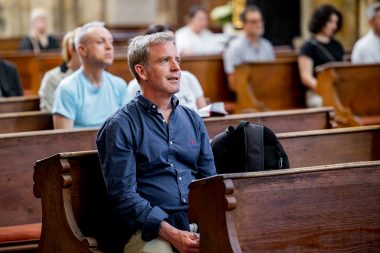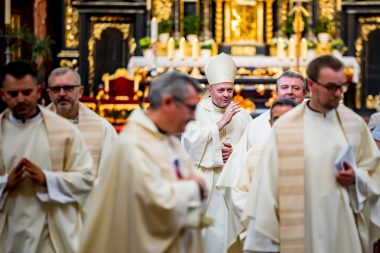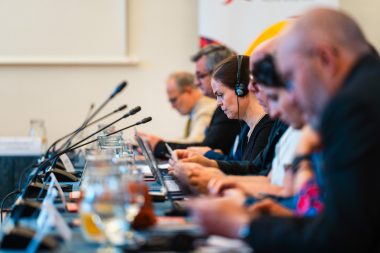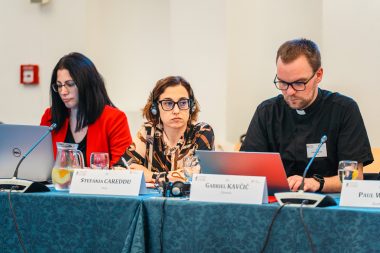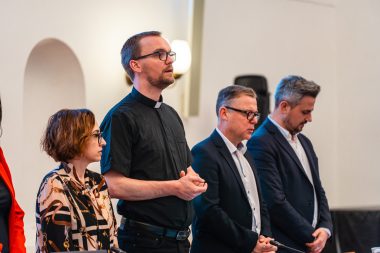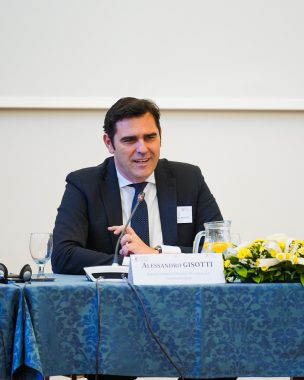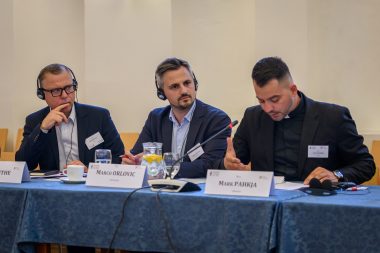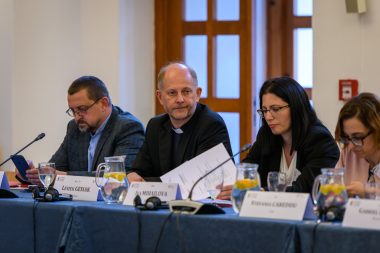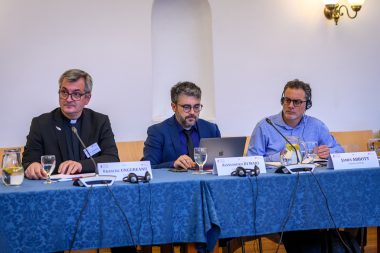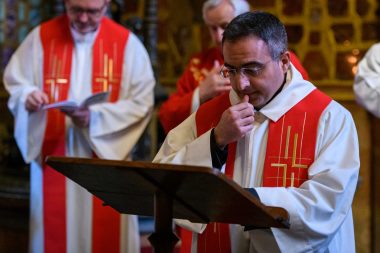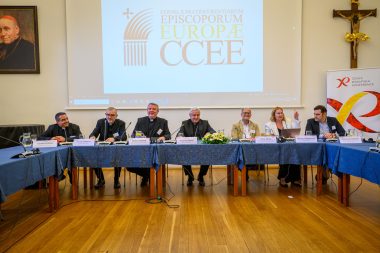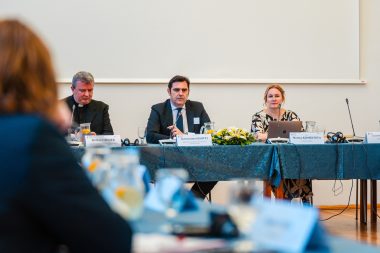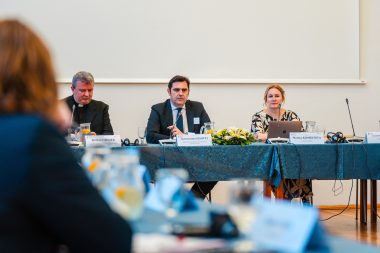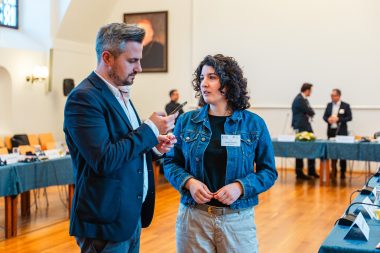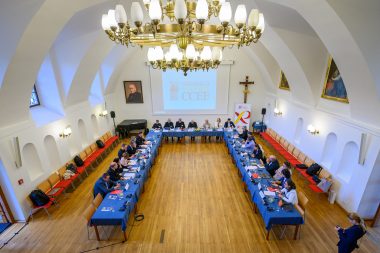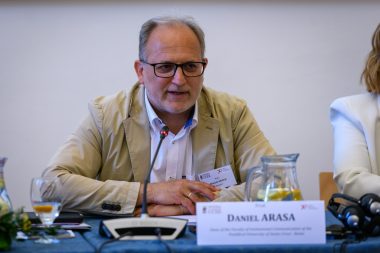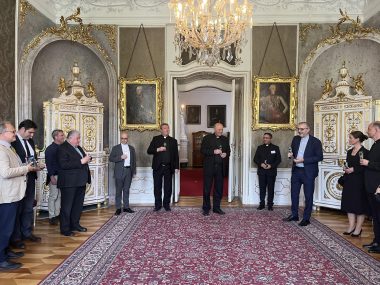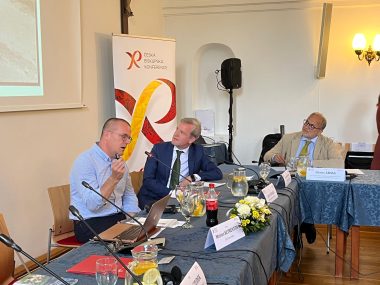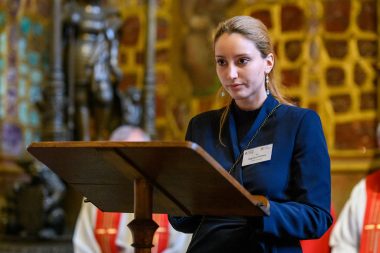From 3 to 5 June 2025, the Archbishopric of Prague hosted the meeting of the spokespersons and the press officers of the European Bishops’ Conferences, gathered in the capital of the Czech Republic from almost thirty European countries. The theme of the seminar, organised by the Council of the European Bishops’ Conferences (CCEE) together with the Czech Bishops’ Conference, was “Communicating Hope in Today’s Europe“.
The meeting commenced with a speech from Prof. Daniel Arasa, Dean of the Faculty of Institutional Communication of the Pontifical University of Santa Croce, on the theme “The Service of Ecclesial Communicators to the Church in the Present Context”. During his address, he spoke about the challenges that society and the Church must face today, especially the invasiveness of the “digital” and the crisis of confidence within institutions. To respond to these challenges, he proposes three points that can guide change. Firstly, he talked about a “cultural reforestation”. “In this evolution, where forms and channels change so much, the work of the institutional ecclesial communicator will have to deepen a role that has gained weight in recent decades, overcoming the “traditional” aim, although important, of informing about the activities of the Church and also of filling the void of religious knowledge caused by secularisation”. In the second place, he states that it is important to stimulate a greater creativity in our communication. And thirdly, to talk about things of interest and that generate empathy, not only in the methods, but also in the contents. He also affirmed four conditions, i.e. qualities, of the ecclesial communicator that are necessary or appropriate to carry forward a renewal of institutional communication. These are Formation (a desire to be formed), Service, in the relationship between government and communication, Unity and the search for a common objective, as well as to communicate with Joy.
In the second session, the vice editorial director of Vatican Media, Dr. Alessandro Gisotti, focused on the topic of “Communication from Pope Francis to Pope Leo”, highlighting some points that the two Popes have in common. Among these, the primacy given to listening in communication, the need to announce the Gospel to all as well as a synodal approach, also in the way of communicating. In particular, he emphasised Augustinian thought and spirituality as an essential key to understanding Robert Francis Prevost’s vision of communication.
For the former spokesman of the Holy See, some themes such as silence, the search for mystery, the “sermo humilis” (a humble, accessible form of language intended to make the Gospel understandable to all) will serve as the guidelines for the communication style of Leo XIV. Gisotti stressed that, for the first time in the history of the Church, we have a Pope who personally used social media before being elected to the Chair of Peter. Furthermore, Cardinal Prevost has always shown great interest in new technologies, whilst repeatedly calling for an ethical and responsible use of Artificial Intelligence.
This, the journalist concluded, will ensure that even in the “digital continent”,
Pope Leo will exercise his role as Pontiff, “bridge-builder”, committing to favour dialogue and communion in the increasingly polarised world of social networks.
The last session addressed the topic: “The Journalist and the Vatican Communication” with the contribution of two speakers: Mr. Javier Martínez-Brocal, vaticanista and correspondent for the Spanish daily newspaper ABC and Mr. Josef Pazderka, editor-in-chief of Český rozhlas Plus, the Czech State Radio. Javier Martínez-Brocal spoke not only about the role of a journalist accredited to the Holy See, but also shared his personal experience of meeting Pope Francis, whom he accompanied on many trips abroad. Josef Pazderka outlined the main points of the work of a journalist for public service media, especially in the Czech Republic which is considered the most secularised country in Europe, as well as the challenges he faces when covering events related to the Church. He also suggested several recommendations to improve the Church’s communication for more effective and relevant communication.
The meeting participants had the opportunity to discuss other issues together and exchange experiences. The programme also included cultural visits as well as the celebration of Holy Masses.
The next meeting of national heads of communication is scheduled for 5 to 7 May 2026.
Photo: Člověk a Víra

